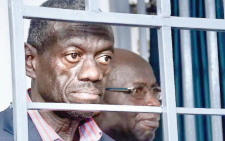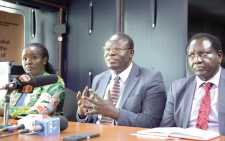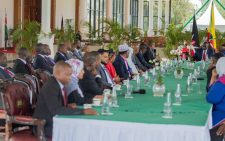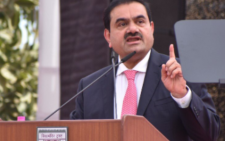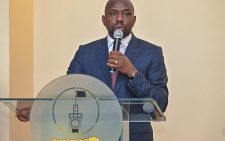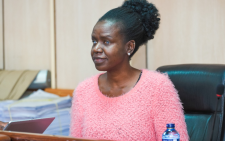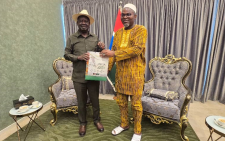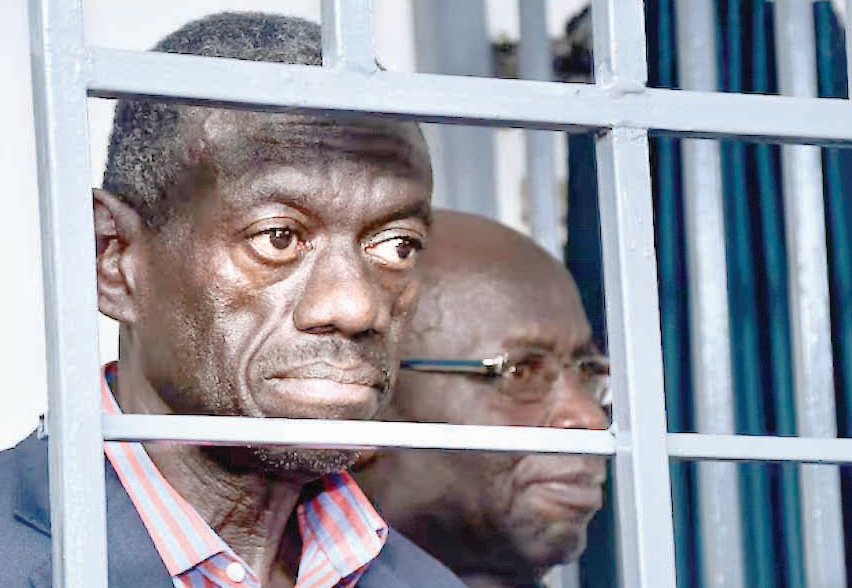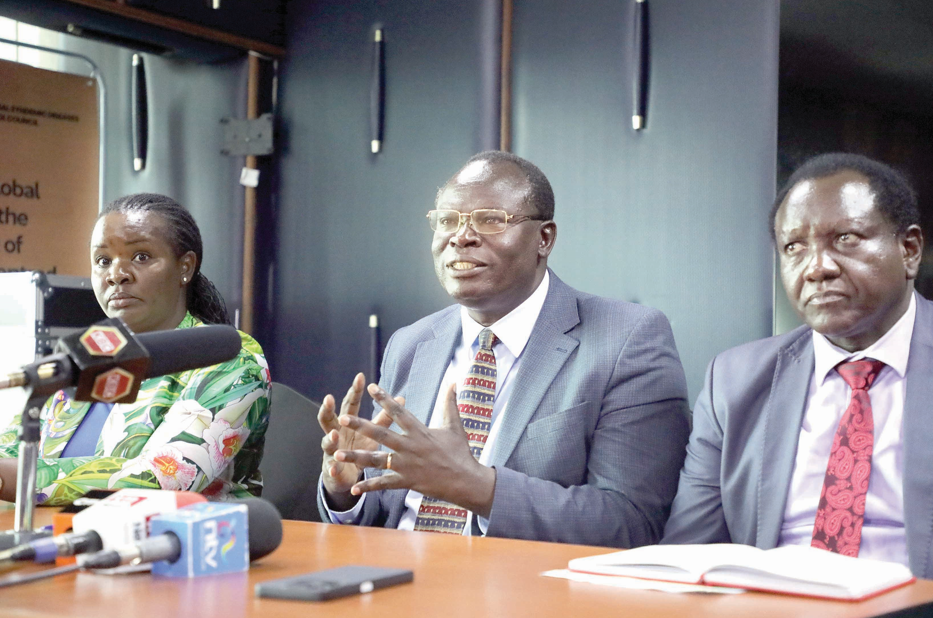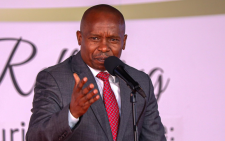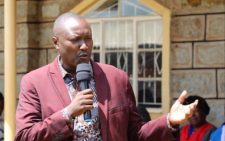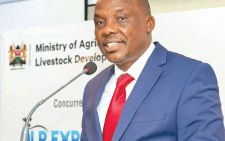Joyce Nyokabi, 63, believed her teenage daughter was being disrespectful when she called out to her and received no response or gave instructions from a distance and was met with silence. Unknown to her then, Hellen Ruguru, her eldest child, was slowly losing her ability to hear.
“I thought she was being rude because she was in her adolescent years,” says Nyokabi, whose suspicions were sustained by medical reports that confirmed Hellen was in good health.
Hellen was born in Nyeri County and at just three years old, she was diagnosed with meningitis, a disease that kept her dependant on injections for some time. Despite this early setback, she grew up like most children, exposed to school, church, and the joys of childhood, Nyokabi reflects.
In 2002, long after Hellen had finished high school, Joyce recalls receiving a call that informed her that her daughter, Hellen, who was working at an Export Processing Zone(EPZ) in Mombasa then, could not hear and that she needed to fetch her immediately.
“The family was shaken as we could not believe that Hellen could not hear,” she says, adding that the absence of a family history on hearing impairment puzzled them even more.
The end of Hellen’s ability to hear marked the beginning of a journey to cultivating a new form of communication for both her and her family.
Lack of sign language
As the world marked International Day of Sign Language, which recognises the importance of sign language, families of people with hearing impairment disability reflect on their journey so far.
Worldwide, there is evidence that shows that sign language is not available to every hearing impaired person who needs it due to a variety of reasons including stigma, limited resources, and unfunded schools for special needs children.
These disparities have remained a barrier for this community, making it difficult for them to interact and communicate effectively with the wider society.
In order to increase awareness about sign language and support the rights of deaf individuals, the UN General Assembly set aside September 23 as the International Day of Sign Languages.
There are 153,381 hearing impaired people in Kenya aged above five years, says Kenya Institute for Public Policy Research (KIPPRA) while quoting the Kenya National Population Census 2019.
It further adds that most of the deaf people (129,518) are in rural areas compared to urban areas (23,843).
Not understanding each other
Hellen who is now a teacher of English and Literature at Tumutumu School for the Deaf says that after she lost her hearing completely, her communication with her immediate family members was affected because none of them had competency in language signing nor had they ever closely interacted with a deaf person. “It was difficult because they did not understand me and neither did I understand them, but I was patient with them,” she reveals.
She adds that her sister was the first to learn basic sign language shortly after she lost her hearing, however her mother’s resolve to learn fluent sign language throughout the years has failed.
“I was once asked to join a support group where we (families with a deaf family member) would be taught sign language, but it was too much, I was not ready to admit that y child will no longer hear,” says Joyce, Hellen’s mother.
During the interview, it was apparent that the years have not whittled the agony Joyce faced when she learnt that her child was hearing impaired. “I do not know sign language fluently, but I can sign the alphabet and a bit of fingerspelling,” she says.
The core form of communication between the mother and daughter is lip-reading, which Hellen can do because she could previously hear or write down what she wants to communicate.
Judy Kihumba, a counselling psychologist and a sign language interpreter, explains that it’s natural for families to experience denial when a loved one loses their hearing.
“It can be difficult for families to come to terms with this reality and that is why I encourage families to seek psychosocial support to help navigate the emotional challenges and adapt to the situation,” she says. Noting some of the challenges that emerge in families where there is a challenge of communication with hearing impaired family members, Judy says that there is risk of them being disregarded during important family discussions.
“When there is a lack of an established communication channel, these individuals are likely to be excluded from important discussions such as inheritance, death, and health that require their input,” she says
She says it’s important for families to give the deaf autonomy and one way of doing this is by enrolling them in schools where they gain formal education and build their self-esteem. She also says the state should create early intervention pathways, such as establishing more schools for the deaf and availing interpretation services in critical places like hospitals and governmnet offices.
Judy urges all learning institutions to promote the teaching of Kenya Sign Language to all students, emphasising on its importance.
“All my children, though hearing, are fluent in sign language. Sign language is my last born’s first language. We must strive to create a society that is inclusive and accommodating to people of all abilities,” she says.
One sign at a time
Prisca Wairimu, Hellen’s sister, had an equally challenging time accepting that Hellen could not hear. “Deafness meant I could not make silly jokes with her and that was hard because she is my only sibling,” she says.
Prisca who refers to her sister as her best friend says her sign language competency has improved thanks to years of practice and Hellen who feeds her with new signs everyday. “We now communicate very well.” she says.
Hellen writes that she trains her young sons who are abled on how to sign, so that they can communicate with her efficiently, even though she is careful not to impose on them. She also adds that the general community should try to accurately use sign language to better communicate with the deaf community. According to World Health Organisation (WHO), by 2050, over 700 million people or one in every 10 people will lose their hearing capacities.
The constitution of Kenya guarantees persons with disability the right to enjoy all their rights. However, a few things make this right unreachable and Terry Simba knows this all too well.
“It was challenging to find a school that would accept my child as most of them rejected him,” says Terry whose third-born child, Fadhili Enox is hearing impaired.
At six months, Terry became acutely aware of Fadhili’s delayed milestones. However, it would take her more than a year to receive a diagnosis that confirmed something outside her imagination.
Terry who had past knowledge of sign language began to awaken her signing skills, teaching her son the little she knew, but she needed more help to care for him, but it was not forthcoming. “When I was looking for a school for him, it was not because I wanted to relieve myself of him, but so that I can learn how to take care of him even better,” she says. When she eventually found a school that could take Fadhili in, she experienced relief that her child could finally learn sign language and interact with other children like him.
Now in grade four, Terry says Fadhili has blossomed into an enthusiastic, outgoing, smart boy who has clinched leadership roles in school and excelled in the arts. “He emerged as a top student in poem recitation during school music competitions.”
Not able to say everything
While sign language enables him to communicate about anything, Terry says the language fails to convey profound feelings and needs.
“I can see sometimes that he is struggling to say things, and that is why I am keen to learn the psychological link so that I can help him,” she explains. Terry volunteers as an interpreter teaching parents and anyone interested in learning sign language, a role that earned her an elective position as a parent leader at Fadhili’s school.
“I would wish for interpreters to serve the impaired community and not to heavily commercialise their skills,” she says, adding that interpreters should be accredited to uphold professionalism.


